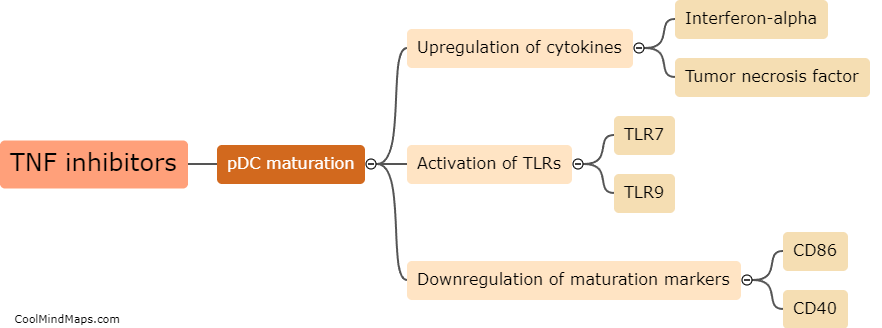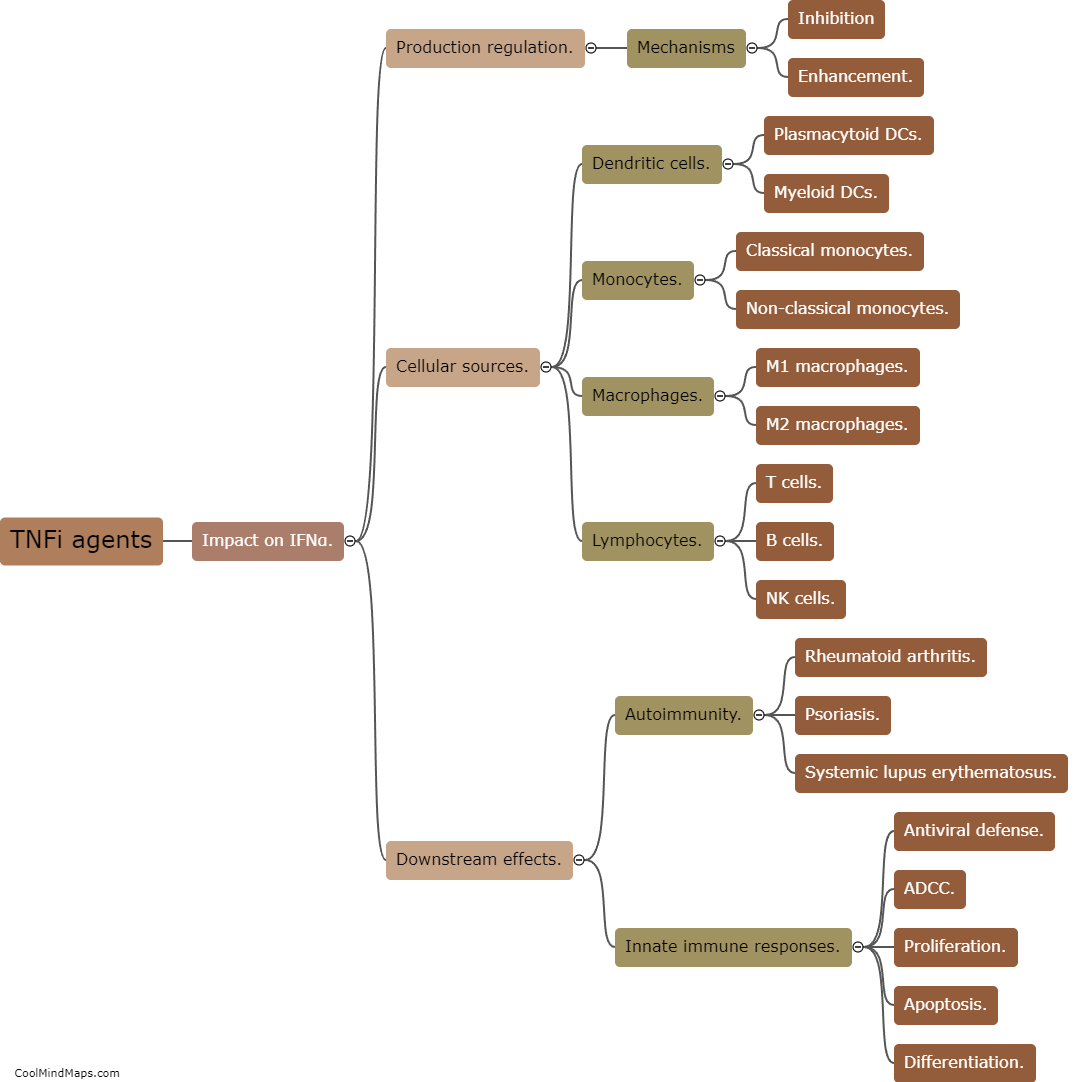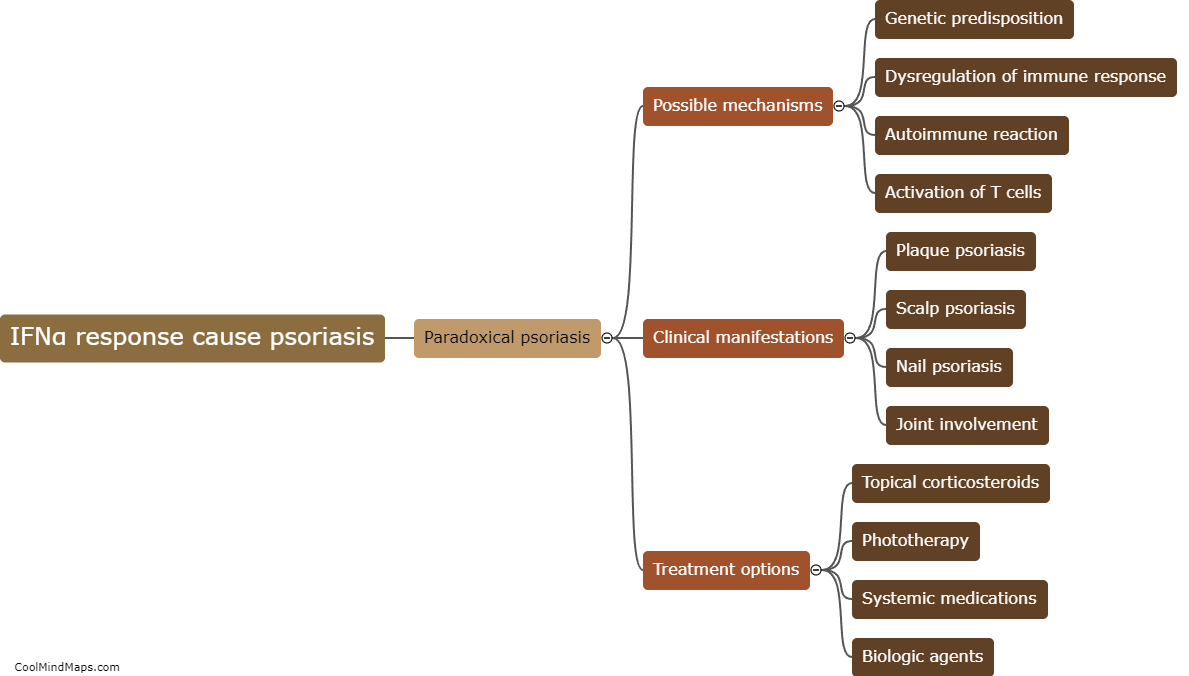What is the relationship between TNFi-induced increase in IFNα response and paradoxical psoriasis?
The relationship between TNFi (tumor necrosis factor inhibitors)-induced increase in IFNα (interferon-alpha) response and paradoxical psoriasis refers to the link between the use of TNFi medications, which are used to treat inflammatory conditions, and the development or exacerbation of psoriasis symptoms in some patients. It has been observed that certain individuals undergoing TNFi therapy may experience paradoxical psoriasis, where their psoriasis worsens or new psoriasis lesions appear. Studies have suggested that this paradoxical reaction may be associated with an increased IFNα response induced by TNFi drugs, as IFNα is known to play a part in the pathogenesis of psoriasis. However, the exact mechanisms underlying this relationship are still not completely understood and further research is required for a comprehensive understanding.

This mind map was published on 12 July 2023 and has been viewed 255 times.











